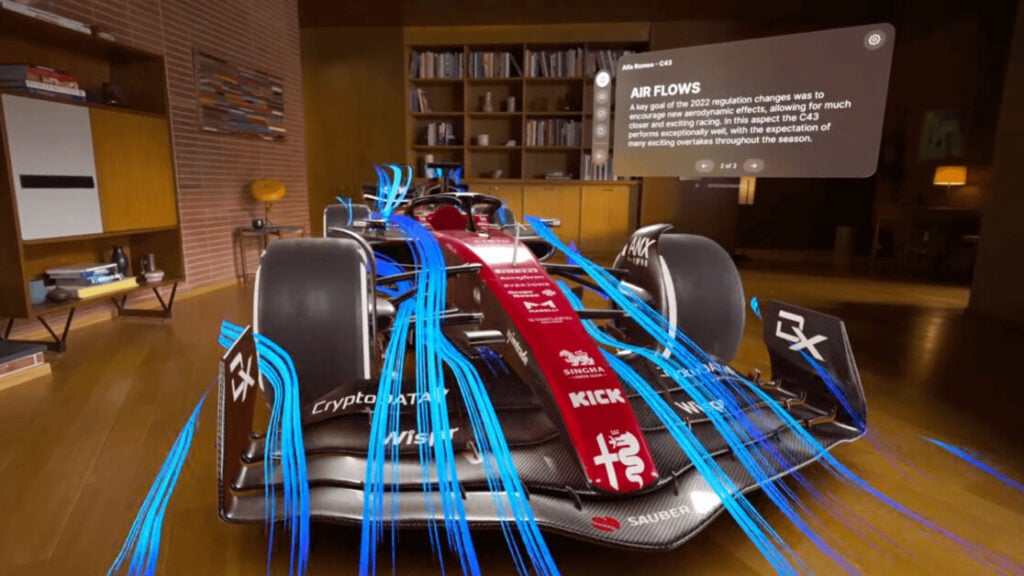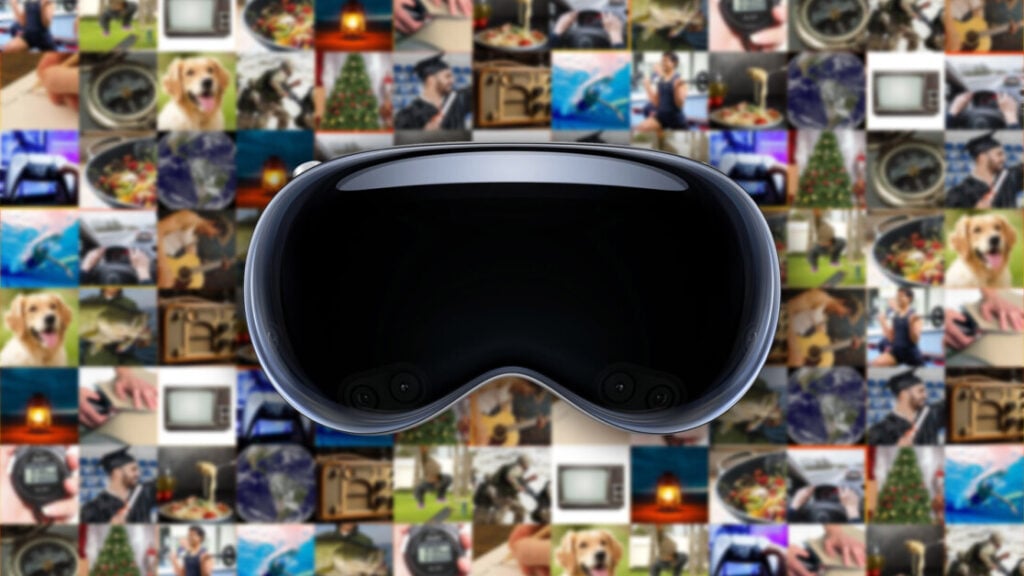Apple’s Vision Pro, launched as a groundbreaking “spatial computer,” has faced a mixed reception in its first seven months on the market. Definitely not the typical consumer gadget to be splurged on, nor even practically used every day for that matter. Yet, it showed a bit of promise, leaving us wondering what an improved successor would look like.
And so, the speculation on its successor began, spawning thousands of discussions on the internet of what should be, and how it should solve its problems.
Current Market Reception
As mentioned, the Vision Pro’s market performance could have been better than most of the technically groundbreaking Apple products of the last few decades. Yes, there is even less of a fanfare than the much less controversial Apple Watch. Talking about strapping a sweaty piece of gaudy scuba goggles around your head, with a $3,500 price tag that does not impress at all. In fact, reports suggest that half a year post-launch, sales plummeted to 75%, which is a record low even if the company never expected the product to fly off the shelves in the first place.
To be fair, early adopters did praise certain aspects of the Vision Pro. Its precise gesture and eye-tracking controls, for instance, are simply a quantum leap ahead of its predecessors, even against Microsoft’s vaunted HoloLens.
However, the question remains whether it can provide a significant advantage over what already exists… at a cost that is equivalent or lower to what it intends to replace.
Digging the Rumor Mill
In light of the tepid launch, Apple is reportedly exploring significant hardware changes for the next iteration. One notable industry insider rumour suggests a potential shift to micro-OLED displays. It is a move that both improves production costs and visual fidelity, though admittedly still not addressing the core issue of practicality for such a gaudy piece of hardware.
Another suggested interesting possibility is offloading some processing tasks to other devices in Apple’s ecosystem. The patent did specify that it is more of “combining workloads” than simply letting your M-chip-powered Apple devices do all the number crunch.
Nonetheless, this approach can still significantly reduce the Vision Pro’s weight and cost, instantly addressing the two major criticisms of the current model. As a bonus, it also segues very nicely to Apple’s way of entwining users to its product ecosystem (if the Vision Pro 2 will ultimately limit its standalone capabilities).
Making it Reasonable on Both Sides
Of course, the elephant in the room remains the Vision Pro’s hefty price tag. Instead of just lowering the cost upfront, Apple plans to release a lower-tier product priced at around half the cost of the normal version. This “non-Pro” model could help broaden the device’s appeal, but it raises questions about which features Apple might sacrifice to achieve this price point.
Possible compromises include removing the EyeSight display, using lower-resolution screens, or as we suggested earlier, relying more heavily on external devices for processing power. We certainly hope that it is the latter, though, as an AR display would lose its core purpose if its basic visual capabilities are nerfed for the sake of being more “affordable.”
But even if slashed in half, a $1,500-$2,000 price point is still pretty steep for a product that is pushed for mass adoption as the next everyday gadget. Remember, not even Meta’s Quest VR headsets (starting at $300!) were able to achieve this. Amazing tracking and immersive floating UI is one thing. Being able to use it as a practical device for everyday use is an entirely different hurdle altogether.

Killer App Concepts?
And speaking of practical use, the Vision Pro 2’s success still ultimately hinges on its software ecosystem. The current lack of “killer apps” has been a common criticism, and Apple needs to address this to drive the adoption of future models.
Being the new snappy mixed reality gadget, we all have expressed both excitement and concern about the birth of new, optimised apps for the Vision Pro. However, instead of looking at a new computing paradigm, many more worry about the limited user base and the challenges of designing spatial interfaces.
Take a look at Vision Pro versions of popular iOS apps. With the exception of a few better-tweaked ones like Synth Riders, nearly every single one just stuck to the same old floating screen without taking advantage of the new virtual environment whatsoever.
More intriguingly, Apple has yet to integrate its new AI features, dubbed “Apple Intelligence,” into the Vision Pro. This is a key area of development for the next iteration, potentially offering more intuitive interactions and personalised experiences in spatial computing environments.
On the other hand, more entertainment-oriented users may wish upon a more extensive library of Vision Pro-native games. Of course, you can always keep it simple and go for a web browser-based game, visit an online casino platform, pick a live table game, and immerse yourself in a round of Blackjack without needing to instal an app. Still, there’s a lot to be desired knowing the power that lays (or sits?) on your head. This is something that’s lacking, especially when talking about triple-A games, but thankfully, Apple has turned a corner on the topic of serious gaming, so with each new headset iteration, we will see improvements in the title picks and not only hit the golf ball, or play with chips.
Other Minor Quirks
The next Vision Pro will also need to solve other compatibility issues of its predecessor. The most glaring one is the inability of people wearing glasses to use the product directly. Well, you technically can, but you still need to purchase a third-party lens, which you need to spend an additional $150 to $200 for. Then there’s the eternal problem of sweating and having a front-heavy load on your head for (potentially) hours. If Apple really wants this to be the next-generation everyday device, they need to fix these (eternal?) inherent issues as well.
Release Timeline Speculation
With all these potential changes in the pipeline, the next logical direction would be its release date. When would we see the next Vision Pro? Some analysts predict a cheaper model could arrive as early as 2025, while others suggest a more substantial update might not come until 2026 or 2027.
Given currently known cycles for new products, however, a WWDC 2026 announcement with a late 2026 or early 2027 release seems more plausible. This gives Apple time to address current limitations and develop more compelling use cases. The extended timeline also allows the company to potentially hype other advanced technologies critically needed by these wearable devices. Improvements in battery technology, for example, more efficient circuitry, or just plain old visual redesigns.
Spoiler: It Will Never Be as Practical as Your Pocket Computer
Let’s face it, wearable headset technologies will always have the inherent and cumbersome disadvantage of being far less universally usable than more mobile devices such as smartphones or even archaic MP3 players.
But, while an innovative revolution isn’t possible as Apple might have hoped, the groundwork has been laid for potentially transformative development. Well… at least within its optimal niches. These so-called “spatial computers” such as the Vision Pro might eventually reveal their true potential if they ever invade other computing markets with a combination of affordability, better technologies, and killer applications.
Just… just leave the Persona concept, please. Please! We’ve already had enough of Zuckerberg’s Meta Avatar nightmare fuel already.
Caroline is doing her graduation in IT from the University of South California but keens to work as a freelance blogger. She loves to write on the latest information about IoT, technology, and business. She has innovative ideas and shares her experience with her readers.






